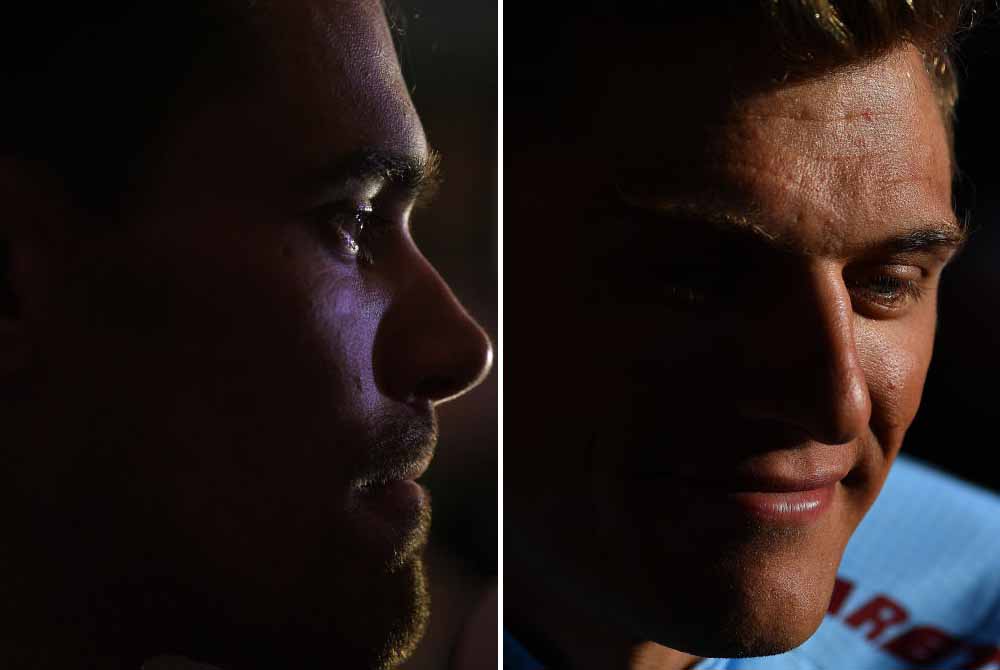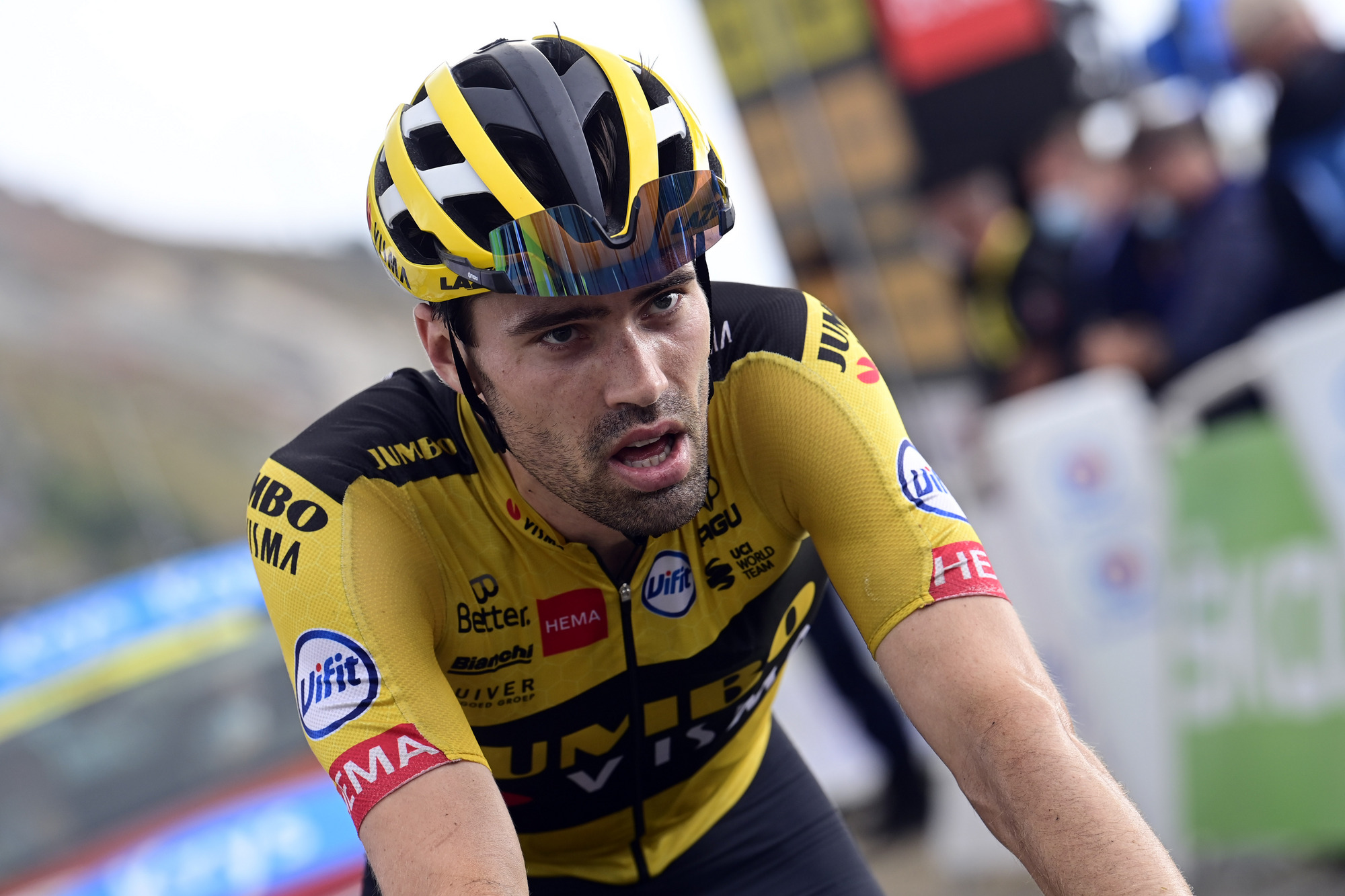Philippa York: Pro cycling can be a toxic place for an athlete's long-term well-being
Understanding the pressures of professional cycling, both mental and physical

Hoe gaat het me je? To save you the time of doing an online translation, it means ‘how are you?’ It's Dutch, but it really doesn't matter what language we're dealing with, because it's something that, in all the time I spent around competitive bike riding, nobody ever asked me.
I never heard it asked of anyone else, either. You might think that team managers, coaches, journalists, and even fans ask that question all the time, and they do, but it's not in the context of how you ask it of your family or friends. How are you? How was that? How did you feel? It's all strictly limited to physical performance. End of.
Even in the debriefing, when you've supposedly had time to calm down and apply some reflection to how a race unfolded, any issues were always limited to the physical category. How were the legs? Did you feel strong? Why couldn't you follow? Why did do you this, that or the other?
When things went well, the aftermath was almost always pleasant. However, if the team plan went badly, there would be shouting and swearing. Sometimes it could be quite personal and humiliating. I learned pretty early in my pro career what not to say when the manager dissected the day's racing. On one occasion, at one of the so-called 'training races' on the Cote d'Azur, Maurice De Muer, head honcho at Peugeot, launched into a tirade after one of the French guys on the team came out with the immortal words ‘pas mal'. The question had barely begun to be put to us all when some poor soul made the error of saying they didn't feel too bad.
"Not bad?" De Muer responded in a voice that contained enough venom to kill an elephant. "NOT BAD? Well why the f**k weren't you in the front then? I don't pay you to feel NOT BAD. If I wanted effing NOT BAD then I could have a hundred others who cost less and one might just be more bloody use."
De Muer's victim shrunk visibly in size and the boss moved on to the next rider who got the same question: How are you?
"Shit," he said.
Get The Leadout Newsletter
The latest race content, interviews, features, reviews and expert buying guides, direct to your inbox!
Then it was my turn, and even before the question had left the mouth of the man we had nicknamed Napoleon, I said "shit" and got a look that made me wish there was a stone I could hide under. Once there had been a couple more of the same self assessments, the ranting calmed a notch and we got what I came to recognise as an average collective bollocking.
You see, the training races or less important events matter, even when everyone has said they don’t. If there's one thing you soon learn as a pro, it is that your last race carries a judgment of you, the rider - of your physical worth.
Dealing with pressure
Nobody cares how you feel. It's a competition, even in the team setting. When things are tense and results are sparse it can be a pretty desperate environment. Even if you won and everyone told you how great you were, there's still mental pressures to process. So you have to learn the techniques that help you cope with the stresses involved and apply them when you can, whether that’s in the team car, bus, airport lounge or hotel room.
And you have to learn this stuff on your own initiative. No one is going to suggest you strengthen your mental capacities because that would mean recognising that there’s a human side to you that needs looking after. You would get suggestions on how to climb, descend, or sprint better but that's as far as it went. It's a really stunted outlook, considering the investment being made.
Have you ever noticed that when therapy is mentioned in sport, it's not a visit to the Priory, with fluffy towels and cabbage smoothies? No, therapy means fixing the physical issue, everything else being the athlete’s problem. It's harsh but it's true.
I ought to point out that Maurice De Muer wasn't unique, and wasn’t the worst team boss for ranting that I encountered. Others were more volatile. There were teams I wouldn't have considered going to because the main directeur sportif was scary, which, when you have had the wrath of Peter Post, is saying something indeed.
But seriously, understanding the pressures that exist at the elite level is a subject barely picked over until someone says ‘enough is enough’, like Marcel Kittel or now Tom Dumoulin.
There are some who think it's a weakness, but in reality, it shows a certain maturity and intelligence to recognise that what you are getting out of the situation isn't what you want or need. Dealing with everyone’s expectations isn't something understood innately or taught at school, and when you reach the very top of the hierarchy, that’s when you realise there's way more to being the person with number one on your back than there was before.

The life of a professional rider can have amazing highs and it can have dreadful lows. How you manage those situations is all too often left to the individual athlete. Even nowadays, with experts to dissect every aspect of physical performance to the nth degree, we still see riders struggling with issues that are directly related to the job.
Nobody ever really talks about the personal costs and relationship pressures that exist when you're spending half the year away from home. There’s a constant need to be in shape, not do anything excessive, and not expose yourself to anything that might impact your performance, even in the off-season. Well, there isn't an off-season because then there's a training camp, a sponsor commitment, or some presentation to attend. The bike riding is almost the easiest part because it's what you love doing, but when all the other pressures build up too much, then you're in trouble.
When I reached team leader level, it was OK for a while, but I realised that what I was getting out of my results wasn't what pleased me most. I liked being the best climber - or among the best - but riding a GC race was a different thing and I lacked the sensations and personal satisfactions of that role. Sure, I understood that being team leader came with the expectations of everyone in the organisation, that my results were their results, and that if we did well then we could all pay our mortgages and put food on the table.
I can hear you say, ‘but the rewards are better at the top,’ and they are, but you still need to be that bike rider who enjoys the racing, the training, and the sacrifices that allow you to be competitive. If that isn't happening for whatever reason, then you start to doubt why you are doing it.
We need well-being and counselling services
Among the most striking things I've read lately are the interviews involving Jani Brajkovič, where he talks about self-worth, eating disorders, and how he ended up in a bad place. It's quite shocking in some ways but it's a result of the pressures and not getting the help he needed to not only function as a pro bike rider but as a person too.
The examples of the stresses of racing at the top level are evident when you see things like the sense of relief on Alex Dowsett's face when he won his stage at the Giro, or the emotions that Julian Alaphilippe lets flow when he performs well. It's only when you step back from those intense environments that you realise it's a fairly toxic place for the athlete's long-term well-being.
Thankfully, nowadays there'll be a lot of sympathy and support for Tom Dumoulin's decision to call a timeout. As one of the peloton's spokesmen, he's shown that he has not only the physical performances to justify his status but also a level of intelligence that means he communicates well. For him to need some space to figure out what he wants from his racing is quite indicative of the pressure a top pro is under. Hopefully, he'll figure it out, but it does make me wonder how well we are looking after all aspects of athletic performance - the mental and the physical.
It makes me think that when it's possible to do so, there ought to be some kind of well-being or counselling service available at major competitions so that people can discuss personal issues in confidence, without a judgment of weakness. At the Olympic Games, you can get a burger at 4am, you can get your hair cut or teeth fixed, there are even free condoms, but I haven't seen any mention of psychological support, which seems a bit of a shortcoming.
The 2023 World Championships in Glasgow will be the first time all cycling disciplines come together in one place. It could be a fitting occasion to expand those services beyond just the things we can see.
Philippa York is a long-standing Cyclingnews contributor, providing expert racing analysis. As one of the early British racers to take the plunge and relocate to France with the famed ACBB club in the 1980's, she was the inspiration for a generation of racing cyclists – and cycling fans – from the UK.
The Glaswegian gained a contract with Peugeot in 1980, making her Tour de France debut in 1983 and taking a solo win in Bagnères-de-Luchon in the Pyrenees, the mountain range which would prove a happy hunting ground throughout her Tour career.
The following year's race would prove to be one of her finest seasons, becoming the first rider from the UK to win the polka dot jersey at the Tour, whilst also becoming Britain's highest-ever placed GC finisher with 4th spot.
She finished runner-up at the Vuelta a España in 1985 and 1986, to Pedro Delgado and Álvaro Pino respectively, and at the Giro d'Italia in 1987. Stage race victories include the Volta a Catalunya (1985), Tour of Britain (1989) and Critérium du Dauphiné Libéré (1990). York retired from professional cycling as reigning British champion following the collapse of Le Groupement in 1995.
